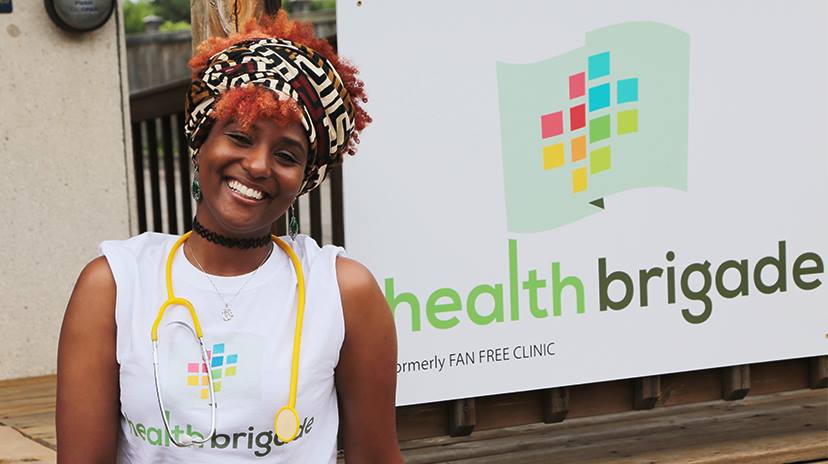How Virginia’s oldest free clinic transitioned to telehealth
Richmond’s Health Brigade has a long history of meeting patients where they are. Created more than a half century ago in Richmond’s “Fan” district – a largely residential neighborhood that gave the community health clinic its first name – the former Fan Free Clinic became the first free clinic in the Commonwealth.
From its very beginning, Health Brigade put a premium on inclusivity, swinging its doors wide to the community, irrespective of a patients’ race, ethnicity, sexual orientation, or ability to pay. Its compassionate, non-judgmental environment helped forge a reputation focused on helping the individual.
But the advent of the pandemic quickly challenged Health Brigade’s longstanding capacity to serve its patients. And yet, the service teams pivoted quickly – though with some uncertainty – toward an agency wide telehealth model.
“I was one of the skeptics,” recalls Dr. Muriel Azria-Evans, Health Brigade’s Director of Mental Health & Wellness. “I do a lot of trauma work, and I thought, ‘is it going to be the same?’ I’m not holding space. I can’t lean in. Am I going to be able to see the nonverbals in the same way?”
And now?
“I have to say, I was pretty pleasantly surprised,” she says. “I think the care is equally effective. I think that the therapeutic relationship is not harmed, and you’re still able to really provide quality care through a telehealth format.”
Dr. Azria-Evans also notes the logistical advantages of telemedicine, especially for so many of her clients that live 100 percent below the poverty level and for whom transportation to and from the clinic is a major undertaking.
“I’d have clients that would be on two buses to get to me for a 50-minute mental health session, and two buses to go home. So now we’ve spent three-and-a-half hours away from home or work. There’s a cost to that.”
Little wonder then that Health Brigade has gained some clients since the transition to telehealth that they see face to face on screen but have not actually met them in person.
On the logistical front, Dr. Azria-Evans found the transition especially painless. The agency invested in a new phone system with a free video platform like Zoom, that was confidential and HIPAA compliant. They created secure links for clients, making recurring meetings easy, safe, and convenient.
Moving forward, Dr. Azria-Evans doesn’t foresee telehealth becoming the default means for seeing patients but predicts that a hybrid model will likely emerge.
In other words, Health Brigade is once again meeting their patients where they are.

